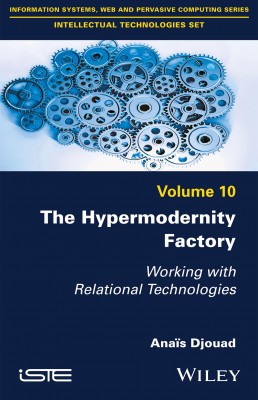
The digital regime and its bio-anthropotechnology, characteristic of hypermodernity, are giving rise to unprecedented living and working conditions. Relational, inter-individual and exchange systems are being transformed. Technologies bring new ways of communicating, speaking, writing, organizing and controlling tasks. They are explicit, but their reticularities also operate invisibly, underground. However, they define powerful norms for work.
Beyond the digital object, at the heart of the computerization process of the last fifty years in France, a progressive transformation of the work regime has taken place. As our social ecologies adapt, adopt, conform and metamorphose, conflict, polemics and sometimes creative resistance emerge.
The Hypermodernity Factory is based on an investigation carried out within an administrative department of Inria (the French public institute for research into information technology and techniques) – then in the midst of a social crisis – to discern psychic and collective individuation processes, in a context of instability and specific communication difficulties. Immersed in these almost disruptive anthropotechnical conditions, and subject to unavoidable processes of subjectivation, the subject of office life, from manager to employee, finds themselves in a confused situation; they are constantly living a complex experience of their own in the hybrid, dynamic evolution of the digital regime.
1. Company, Employees, Society and Technology.
2. Workplace Computerization Strategies and Neo-management.
3. Inria: Organizational and Structural Difficulties.
4. Struggling Ecosystems.
Anaïs Djouad, after various assignments in the public and private sectors, became a game designer during the serious games boom. In 2022, she defended her sociology thesis at the EHESS; she is now a sociologist and teacher.